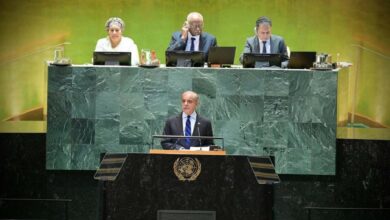Bangladesh is joining the international anti-disappearance charter, which is in the charter
Sheikh Hasina created a scary state by disappearing thousands of people in Bangladesh. Not only the living, but hundreds of dead bodies were put to sleep by the Hasina government. Which is known as ‘mirror’. The relatives of the missing persons have been demanding for a long time but they have not received justice for this human rights violation. In this situation, the current interim government is going to join the International Convention on Anti-Disappearance.
Bangladesh wants to join this charter before the International Anti-Disappearance Day on August 30.
According to the statistics of the human rights organization Odhikar, more than 700 people have gone missing in Bangladesh in the last 15 years. Among them, more than 150 people have not been found yet.
The Anti-Disappearance Charter was adopted by the United Nations General Assembly in December 2006. Its implementation began in 2010 after 32 countries signed it. The Charter as a whole aims to end impunity for these crimes in addition to ending disappearances, establishing justice and providing assistance to victims. So far 75 countries of the world have joined this charter.
Bangladesh is a signatory to 8 of the 9 UN Human Rights Charters. Bangladesh has not signed the Anti-Disappearance Convention despite long-standing requests from the United Nations. The interim government wants to end the culture of disappearances while upholding human rights. For this purpose, the government is going to join the anti-disappearance charter.
Bangladesh has been under international criticism for more than a decade and a half over allegations of state-sponsored disappearances. After the fall of Sheikh Hasina’s government, the issue of disappearances came to the fore after several people were released after a long time from the secret detention center known as ‘Mirror’.
The relatives of the missing persons have been demanding for a long time but they have not received justice for this human rights violation. In this situation, the current interim government is going to join the International Convention on Anti-Disappearance. Bangladesh wants to join this charter before the International Anti-Disappearance Day on August 30.
The Anti-Disappearance Charter defines disappearance as a crime against humanity. A 10-member committee of the United Nations works to ensure that this charter is properly implemented. The Committee scrutinizes the various reports of the States Parties. According to Article 33 of the Charter, if there is a case of disappearance in a country that is a party to the Charter, then the committee members can visit that country to see the situation. However, many parties have not accepted the provisions of this article.
There are total 45 articles in the Charter. If a member state of the United Nations is party to it, it can inform the United Nations of its decision to “not comply with one or more articles” of the Charter.
Sri Lanka and the Maldives are among the South Asian countries that have signed the Charter; That is, it has adopted it as part of their internal law. Also India has only signed it but not ratified it. On the other hand, out of the five permanent members of the UN Security Council, only France has signed it.
When asked about Bangladesh’s accession to the Anti-Disappearance Charter, Mohammad Sufiur Rahman, the former Permanent Representative of Bangladesh to the United Nations Missions in Geneva, told Prothom Alo that Bangladesh is going to become a party to the International Anti-Disappearance Charter, which is not only about upholding human rights. Along with human rights, it involves issues like rule of law, democratic practice, and establishment of social justice. As a result, it would have been appropriate if Bangladesh took some time and decided to become a party to this charter, taking into consideration the relations with various countries in the international scope as well as the United Nations.





